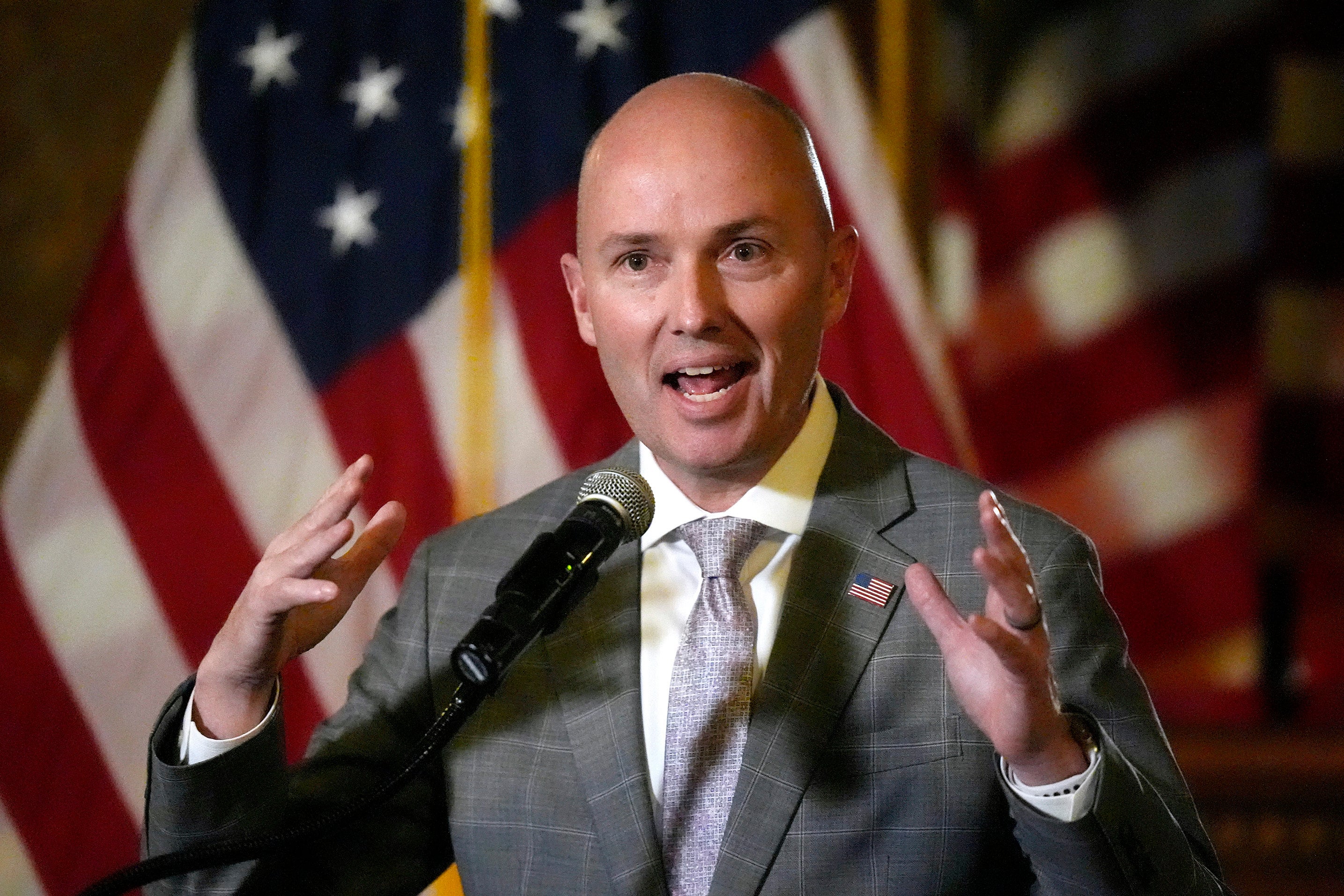Federal judge temporarily blocks Utah social media laws aimed to protect children
A federal judge in Utah temporarily blocked social media access laws aimed at protecting children’s mental health and privacy

A federal judge in Utah has temporarily blocked social media access laws that leaders said were meant to protect the mental health and personal privacy of children, saying they are unconstitutional.
U.S. District Court Judge Robert Shelby on Tuesday issued the preliminary injunction against laws that would have required social media companies to verify the ages of their users, disable certain features and limit the use of accounts owned by Utah children.
The laws were set to take effect on Oct. 1, but will be blocked pending the outcome of the case filed by NetChoice, a nonprofit trade association for internet companies such as Google, Meta — the parent company of Facebook and Instagram — Snap and X.
The Utah legislature passed the Utah Minor Protection in Social Media Act to replace laws that were passed in 2023 and were challenged as unconstitutional. State officials believed the 2024 act would hold up in court.
But Shelby disagreed.
“The court recognizes the State’s earnest desire to protect young people from the novel challenges associated with social media use,” Shelby wrote in his order. However, the state has not articulated a compelling state interest in violating the First Amendment rights of the social media companies, he wrote.
Republican Gov. Spencer Cox said he was disappointed in the court's decision and was aware it could be a long battle, but said it “is a battle worth waging,” due to the harm that social media is causing children.
“Let’s be clear: social media companies could voluntarily, at this very moment, do everything that the law put in place to protect our children. But they refuse to do so. Instead, they continue to prioritize their profits over our children’s wellbeing. This must stop, and Utah will continue to lead the fight.”
NetChoice argues Utah residents would have to supply additional information to verify their age than social media companies usually collect, putting more information at risk of a data breach.
Several months after Utah became the first state to pass laws regulating children’s social media use in 2023, it sued TikTok and Meta for allegedly luring in children with addictive features.
Under the 2024 Utah laws, default privacy settings for minor accounts would have been required to restrict access to direct messages and sharing features and disable elements such as autoplay and push notifications that lawmakers argue could lead to excessive use.
Parents could obtain access to their children’s accounts and would have grounds to sue a social media company if their child’s mental health worsens from excessive use of an algorithmically curated app. Social media companies must comply with a long list of demands — including a three-hour daily limit and a blackout from 10:30 p.m. to 6:30 a.m. — to help avoid liability.
The laws sought to shift the burden of proof from the families onto the social media companies, requiring them to demonstrate that their curated content did not fully or partially cause a child’s depression, anxiety or self-harm behaviors. Companies would have to pay at least $10,000 in damages for each case of an adverse mental health outcome.
NetChoice has obtained injunctions temporarily halting similar social media limitation laws in California, Arkansas, Ohio, Mississippi and Texas, the organization said.
“With this now sixth injunction against these overreaching laws, we hope policymakers will focus on meaningful and constitutional solutions for the digital age,” said Chris Marchese, director of litigation for NetChoice.